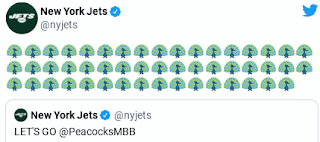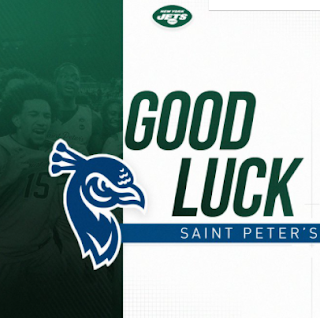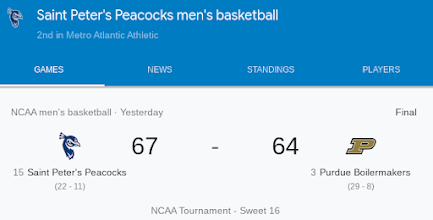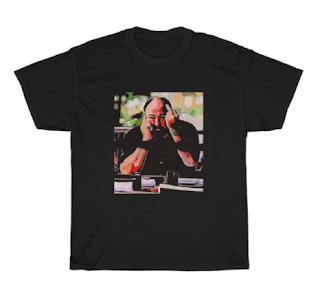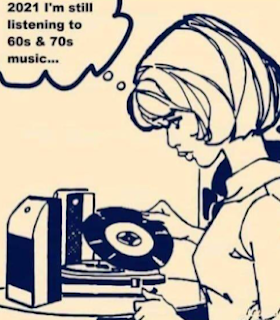Is OLD MUSIC KILLING NEW MUSIC ?
"LET'S HOPE SO. NEW MUSIC SUCKS" !!!
"Because Current Day Music Sucks"
The BEATLES
The following is an article by Ted Gioia, titled Is Old Music Killing New Music, and article published in The Atlantic. And with a rebuttal by music lover, author Daniel B. Zwicke.
From The ATLANTIC
by Ted Gioia
TG :
Old songs now represent 70 percent of the U.S. music market, according to the latest numbers from MRC Data, a music-analytics firm. Those who make a living from new music—especially that endangered species known as the working musician—should look at these figures with fear and trembling. But the news gets worse: The new-music market is actually shrinking. All the growth in the market is coming from old songs.
Rebuttal by Daniel Zwicke
DZ .. This is because New Music SUCKS, and the music of the past is Superior to the so-called new Music plain and simple. I even have a hard time even calling the garbage that they (so-called musical artists) music. The so-called new music of the past 20- 25 years or so is so horrible, it really mistifies me. This garbage they have been putting out, is usually devoide of rythym and melody, and usually lacks any sort of structure. The stuff is Flat, and doesn't have the multi layers of music that so much of the fabulous recordings of the 1960s, 70s and even into the 1980s had.
I just don't get it? How so much wonderful music was produced in the R&B, Rock N' Roll, Pop, and Vocalists Genres in the 60 and 70s, with thousands of wonderful recording, and then all of a sudden, great music died. it disappeared, and all we were left with is Shitty Rap Hip Hop Crap, so-called Alternative Rock, and painfully mediocre solo artist like Justin Timberlake.
Alternative Rock? This one makes me laugh. Alternative to what? Great Rock? Yes I beleive so, because this so-called alternative Rock is so shitty, flat, devoid of structure and any sort of ryrhrm or melody what-so-ever like Hip Hop, it just plain" SUCKS!"
The 200 most popular new tracks now regularly account for less than 5 percent of total streams. That rate was twice as high just three years ago. The mix of songs actually purchased by consumers is even more tilted toward older music. The current list of most-downloaded tracks on iTunes is filled with the names of bands from the previous century, such as Creedence Clearwater Revival and The Police.
DZ : Again, this is because current day music Sucks!
TG :
I encountered this phenomenon myself recently at a retail store, where the youngster at the cash register was singing along with Sting on “Message in a Bottle” (a hit from 1979) as it blasted on the radio. A few days earlier, I had a similar experience at a local diner, where the entire staff was under 30 but every song was more than 40 years old. I asked my server: “Why are you playing this old music?” She looked at me in surprise before answering: “Oh, I like these songs.”
DZ : Because the older music is great, and superior to the Shit they (current music industry persons) have been putting out for the past 20 years.
TG :
Never before in history have new tracks attained hit status while generating so little cultural impact. In fact, the audience seems to be embracing the hits of decades past instead. Success was always short-lived in the music business, but now even new songs that become bona fide hits can pass unnoticed by much of the population.
DZ : What is Bonafide? They are not Bonafide hits, they are garbage, that become hits, simply as a result of the people who support them have such Horrible Taste in Music, simple as that.
TG :
Only songs released in the past 18 months get classified as “new” in the MRC database, so people could conceivably be listening to a lot of two-year-old songs, rather than 60-year-old ones. But I doubt these old playlists consist of songs from the year before last. Even if they did, that fact would still represent a repudiation of the pop-culture industry, which is almost entirely focused on what’s happening right now.
DZ " What is happening right now, and for the past 20 years is that the music industry consist of un-talented artist like Kanye West, Justin Timberlake, etc., most Rap artist, and just about all of the so-called Alternative rockers that produce horrible shitty music. Their are practically no artist, in this day and age capable of producing anything great, like hundreds of talented Rock, Pop, Solo, and R&B artist of the 60s and 70s. Artist like : Frank Sinatra, Diana Ross, Marvin Gaye, Stevie Wonder, The Beatles, Barbara Streisand, and so many others. The list is long. There were thousands of wonderful songs recorded in the 60s and 70s. Thank God for that, as we enjoyed those great songs then, and thanks to recordings we can enjoy them now, and not have to listen to the Shit Music of the past 20 years. Simple as that.
TG :
Every week I hear from hundreds of publicists, record labels, band managers, and other professionals who want to hype the newest new thing. Their livelihoods depend on it. The entire business model of the music industry is built on promoting new songs. As a music writer, I’m expected to do the same, as are radio stations, retailers, DJs, nightclub owners, editors, playlist curators, and everyone else with skin in the game. Yet all the evidence indicates that few listeners are paying attention.
DZ : "Hello, record labels, publicists, band managers, and other so-called music professionals?" Try making some good music, instead of the garbage you make now and for the past 20 years. Try to train musicians to become great singers, song writers and muscicians like : Eric Clapton, Carol King, Paul McCartney, Jimmy Page, Keith Richards, Mick Jagger, Marvin Gaye, Joe Perry, Barbara Streisand, Frank Sinatra, Dean Martin, and Smokey Robinson, to name but a few of the hundreds of great musical talents of the 60s and 70s, and then maybe, once again you can start producing real music again. Music that sounds pleasant, has melody, ryhme, reason, and rythym, and sounds great, like the great R&B, Pop, Rock, and Vocals of years past.
TG :
Consider the recent reaction when the Grammy Awards were postponed. Perhaps I should say the lack of reaction, because the cultural response was little more than a yawn. I follow thousands of music professionals on social media, and I didn’t encounter a single expression of annoyance or regret that the biggest annual event in new music had been put on hold. That’s ominous.
Can you imagine how angry fans would be if the Super Bowl or NBA Finals were delayed? People would riot in the streets. But the Grammy Awards go missing in action, and hardly anyone notices.
DZ : "Geeze are you Kidding Me Man? The Grammys Suck." There is nothing but shitty artist and shitty music. Why would you want to watch a show like that? It Sucks. There might be a few good spots here and there in the show, if you have an artist from the 60s or 70s singing one of there songs. Like if Barbara Streisand was on and sang one of here songs. The Grammy's is horribel. I can remember the last tiem I watched it for about 30 minutes back in 2014, and it was so horribel, because it's a show about music and all the music sucked. Go figure? Not like how great the Granny Shows were back in the 1960s, 70s, and even the 80s, with great musical artists like: The Beatles, Frank Sinatra, Marvin Gaye, Dianna Ross, Streisand, and such. These were great Granny Shows, great musical artist and great music, unlike today with shitty talentless so-called musicians and horrible shitty music, makes for a Shitty Grammys Show, plian and simple.
TG:
The declining TV audience for the Grammy show underscores this shift. In 2021, viewership for the ceremony collapsed 53 percent from the previous year—from 18.7 million to 8.8 million. It was the least-watched Grammy broadcast of all time. Even the core audience for new music couldn’t be bothered—about 98 percent of people ages 18 to 49 had something better to do than watch the biggest music celebration of the year.
A decade ago, 40 million people watched the Grammy Awards. That’s a meaningful audience, but now the devoted fans of this event are starting to resemble a tiny subculture. More people pay attention to streams of video games on Twitch (which now gets 30 million daily visitors) or the latest reality-TV show. In fact, musicians would probably do better getting placement in Fortnite than signing a record deal in 2022. At least they would have access to a growing demographic.
TG :
Some would like to believe that this trend is just a short-term blip, perhaps caused by the pandemic. When clubs open up again, and DJs start spinning new records at parties, the world will return to normal, or so we’re told. The hottest songs will again be the newest songs. I’m not so optimistic.
Read: Why aren’t there more women working in audio?
A series of unfortunate events are conspiring to marginalize new music. The pandemic is one of these ugly facts, but hardly the only contributor to the growing crisis.
DZ : Let's face it. The factors are that there are no talented musical acts anymore. The so-called musical artist are devoid of tatlent, and their so-called music is awful.
TG "
Consider these other trends:
- The leading area of investment in the music business is old songs. Investment firms are getting into bidding wars to buy publishing catalogs from aging rock and pop stars.
DZ : Because the music is great, and the musical artist from past are superior to today.
TG :
- The song catalogs in most demand are by musicians who are in their 70s or 80s (Bob Dylan, Paul Simon, Bruce Springsteen) or already dead (David Bowie, James Brown).
- DZ .... Again, superior artist, and superior music.
TG :
- Even major record labels are participating in the rush to old music: Universal Music, Sony Music, Warner Music, and others are buying up publishing catalogs and investing huge sums in old tunes. In a previous time, that money would have been used to launch new artists.
DZ .... It only makes sense to do this. Invest in superior products, not inferior ones like todays ss-called musical artists.
TG :
- The best-selling physical format in music is the vinyl LP, which is more than 70 years old. I’ve seen no signs that the record labels are investing in a newer, better alternative—because, here too, old is viewed as superior to new.
- DZ ... "Yes it is. So True."
- In fact, record labels—once a source of innovation in consumer products—don’t spend any money on research and development to revitalize their business, although every other industry looks to innovation for growth and consumer excitement.
- Record stores are caught up in the same time warp. In an earlier era, they aggressively marketed new music, but now they make more money from vinyl reissues and used LPs.
DZ : "Again. Superior Music. 99% of the so-called music of the past 20 to 25 years is horrible. You can't listen to it. Not if you have good taste in music."
- Radio stations are contributing to the stagnation, putting fewer new songs into their rotation, or—judging by the offerings on my satellite-radio lineup—completely ignoring new music in favor of old hits.
DZ : "Superior music to present day music."
TG :
- When a new song overcomes these obstacles and actually becomes a hit, the risk of copyright lawsuits is greater than ever before. The risks have increased enormously since the “Blurred Lines” jury decision of 2015, and the result is that additional cash gets transferred from today’s musicians to old (or deceased) artists.
- Adding to the nightmare, dead musicians are now coming back to life in virtual form—via holograms and “deepfake” music—making it all the harder for young, living artists to compete in the marketplace.
DZ : Because the so-called artist of today do not have any talent. Again, the musical artist of the 60s and 70s are so much better, so far superior to those of today, it isn't even funny. No contest. The artist of today are Horrible. Kanye, Justin Timberlake, Taylor Swift? Please?
TG :
As record labels lose interest in new music, emerging performers desperately search for other ways to get exposure. They hope to place their self-produced tracks on a curated streaming playlist, or license their songs for use in advertising or the closing credits of a TV show. Those options might generate some royalty income, but they do little to build name recognition. You might hear a cool song on a TV commercial, but do you even know the name of the artist? You love your workout playlist at the health club, but how many song titles and band names do you remember? You stream a Spotify new-music playlist in the background while you work, but did you bother to learn who’s singing the songs?
DZ : It's quite simple. Try being talented. Make good music, if you can. Make good music, you'll get noticed. But 98% of the artist of today, have no talented, and are unable to produce great music, the likes of Pop, R&B, and Rock Music of the 60s and 70s ... There's your answer.
TG :
Decades ago, the composer Erik Satie warned of the arrival of “furniture music,” a kind of song that would blend seamlessly into the background of our lives. His vision seems closer to reality than ever.
Some people—especially Baby Boomers—tell me that this decline in the popularity of new music is simply the result of lousy new songs. Music used to be better, or so they say. The old songs had better melodies, more interesting harmonies, and demonstrated genuine musicianship, not just software loops, Auto-Tuned vocals, and regurgitated samples.
DZ .... "Yes, exactly what I've been telling you all. Present day songs and artist are Lousy. Plain and simple. "Music used to be better. Better melodies, more interesting harmonies, and genuine musicianship, not software loops, Auto-Tuned vocals, and sampling." Hello ??? No kidding. a keyword there, Musicanship, that's what the artist of the 60s and 70s had. It's practically non-existant today, other than a handful of artist like Alicia Keys and a few others. So few others, you could probably count on one hand. These are the problems.
TG :
Just take those old records off the shelf
I’ll sit and listen to ’em by myself …
I can understand the frustrations of music lovers who get no satisfaction from current mainstream songs, though they try and they try. I also lament the lack of imagination on many modern hits. But I disagree with my Boomer friends’ larger verdict. I listen to two to three hours of new music every day, and I know that plenty of exceptional young musicians are out there trying to make it. They exist. But the music industry has lost its ability to discover and nurture their talents.
DZ : "I don't think so."

Music-industry bigwigs have plenty of excuses for their inability to discover and adequately promote great new artists. The fear of copyright lawsuits has made many in the industry deathly afraid of listening to unsolicited demo recordings. If you hear a demo today, you might get sued for stealing its melody—or maybe just its rhythmic groove—five years from now. Try mailing a demo to a label or producer, and watch it return unopened.The people whose livelihood depends on discovering new musical talent face legal risks if they take their job seriously. That’s only one of the deleterious results of the music industry’s overreliance on lawyers and litigation, a hard-ass approach they once hoped would cure all their problems, but now does more harm than good. Everybody suffers in this litigious environment except for the partners at the entertainment-law firms, who enjoy the abundant fruits of all these lawsuits and legal threats.
The problem goes deeper than just copyright concerns. The people running the music industry have lost confidence in new music. They won’t admit it publicly—that would be like the priests of Jupiter and Apollo in ancient Rome admitting that their gods are dead. Even if they know it’s true, their job titles won’t allow such a humble and abject confession. Yet that is exactly what’s happening. The moguls have lost their faith in the redemptive and life-changing power of new music. How sad is that? Of course, the decision makers need to pretend that they still believe in the future of their business, and want to discover the next revolutionary talent. But that’s not what they really think. Their actions speak much louder than their empty words.
In fact, nothing is less interesting to music executives than a completely radical new kind of music. Who can blame them for feeling this way? The radio stations will play only songs that fit the dominant formulas, which haven’t changed much in decades. The algorithms curating so much of our new music are even worse. Music algorithms are designed to be feedback loops, ensuring that the promoted new songs are virtually identical to your favorite old songs. Anything that genuinely breaks the mold is excluded from consideration almost as a rule. That’s actually how the current system has been designed to work.
Even the music genres famous for shaking up the world—rock or jazz or hip-hop—face this same deadening industry mindset. I love jazz, but many of the radio stations focused on that genre play songs that sound almost the same as what they featured 10 or 20 years ago. In many instances, they actually are the same songs.
Read: BTS’s ‘Dynamite’ could upend the music industry
This state of affairs is not inevitable. A lot of musicians around the world—especially in Los Angeles and London—are conducting a bold dialogue between jazz and other contemporary styles. They are even bringing jazz back as dance music. But the songs they release sound dangerously different from older jazz, and are thus excluded from many radio stations for that same reason. The very boldness with which they embrace the future becomes the reason they get rejected by the gatekeepers.
A country record needs to sound a certain way to get played on most country radio stations or playlists, and the sound those DJs and algorithms are looking for dates back to the prior century. And don’t even get me started on the classical-music industry, which works hard to avoid showcasing the creativity of the current generation. We are living in an amazing era of classical composition, with one tiny problem: The institutions controlling the genre don’t want you to hear it.
DZ : Actually, the Country Music genre, is the only musical genre nowadays producing good music. Rap Sucks, Altenrative Rock Sucks, and Country Music is the only musical genre that has been putting out any good music for the past 20 years.
The problem isn’t a lack of good new music. It’s an institutional failure to discover and nurture it.
DZ : Yes, they should try to nurture new talented musical artist if they can.
TG :
I learned the danger of excessive caution long ago, when I consulted for huge Fortune 500 companies. The single biggest problem I encountered—shared by virtually every large company I analyzed—was investing too much of their time and money into defending old ways of doing business, rather than building new ones. We even had a proprietary tool for quantifying this misallocation of resources that spelled out the mistakes in precise dollars and cents.
Senior management hated hearing this, and always insisted that defending the old business units was their safest bet. After I encountered this embedded mindset again and again and saw its consequences, I reached the painful conclusion that the safest path is usually the most dangerous. If you pursue a strategy—whether in business or your personal life—that avoids all risk, you might flourish in the short run, but you flounder over the long term. That’s what is now happening in the music business.
Even so, I refuse to accept that we are in some grim endgame, witnessing the death throes of new music. And I say that because I know how much people crave something that sounds fresh and exciting and different. If they don’t find it from a major record label or algorithm-driven playlist, they will find it somewhere else. Songs can go viral nowadays without the entertainment industry even noticing until it has already happened. That will be how this story ends: not with the marginalization of new music, but with something radical emerging from an unexpected place.
The apparent dead ends of the past were circumvented the same way. Music-company execs in 1955 had no idea that rock and roll would soon sweep away everything in its path. When Elvis took over the culture—coming from the poorest state in America, lowly Mississippi—they were more shocked than anybody. It happened again the following decade, with the arrival of the British Invasion from lowly Liverpool (again, a working-class place, unnoticed by the entertainment industry). And it happened again when hip-hop, a true grassroots movement that didn’t give a damn how the close-minded CEOs of Sony or Universal viewed the marketplace, emerged from the Bronx and South Central and other impoverished neighborhoods.
If we had the time, I would tell you more about how the same thing has always happened. The troubadours of the 11th century, Sappho, the lyric singers of ancient Greece, and the artisan performers of the Middle Kingdom in ancient Egypt transformed their own cultures in a similar way. Musical revolutions come from the bottom up, not the top down. The CEOs are the last to know. That’s what gives me solace. New music always arises in the least expected place, and when the power brokers aren’t even paying attention. It will happen again. It certainly needs to. The decision makers controlling our music institutions have lost the thread. We’re lucky that the music is too powerful for them to kill.
DZ : If you are talking about the New Music now, all of us with good musical taste know that current day Music is Horrible. It Sucks pure and simple. If you are talking about new music in the music of the future that we might have a glimmer of hope that there wil be new music in our future to replace all the Shit of the curretn day of people like Kanye West and Justin Timberlake (horrible), and that their might be great music in our future once again. That we might once again have musical artist like " Frank Sinatra, Barbara Steisand, The Bealtes, Dianna Ross, The Supremes, The Four Topsm The Sylistics, Marvin Gaye, Johnny Cash, Patsy Cline, Perry Como and the like, this would be great, if it happens, but as those of us with good taste know, current day so-called msuc Sucks, and thankfully we can listen to music of the 1940s, 50s, 60s, The 1970s and even the 80s, and we don't have to listen to the Grabage of today and the past 20 years.
"Basta" !
The RAT PACK
DEAN MARTIN, SAMMY DAVIS Jr.
and FRANK SINATRA
"WHEN MUSIC Was GREAT" !!!
"BECAUSE CURRENT DAY MUSIC SUCKS" !!!
21 CCENTURY MUSIC SUCKS !!!
WHAT The HELL HAPPENED to MUSIC ?????
READ WHY 21st CENTURY MUSIC SUCKS !!!!








